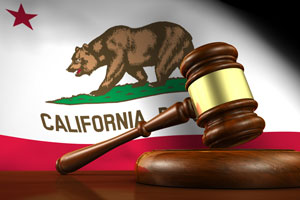The quality of forensic evidence used in support of criminal prosecutions has been a subject of continuing controversy. In response to a 2009 report by the National Academy of Sciences that criticized the state of forensic science, the Obama administration asked the President’s Council of Advisors on Science and Technology (PCAST) to identify actions that would improve the validity of forensic evidence used in the legal system. The resulting PCAST report represented a serious attempt to restore credibility to forensic science.
Shortly before President Biden’s inauguration, the Trump administration issued an unsigned statement denouncing the PCAST report on the ground that it “contained several fundamentally incorrect claims.” Critics suggest that the Department of Justice undermined the PCAST report to protect junk science that prosecutors rely upon in criminal prosecutions.
It is too early to know how the Biden administration will respond to the forensic evidence controversy. A California state senator, Scott Weiner, has weighed in on the issue by authoring the “End Wrongful Convictions Act.”
End Wrongful Convictions Act
According to Sen. Weiner, “inaccurate expert testimony and faulty forensics are the largest factors in [California’s] high rate of wrongful convictions, with approximately 200 people wrongly serving extended jail sentences for serious crimes like rape or murder in California since 1989.”
The “End Wrongful Conviction Act” (California SB 243) would raise the bar on the admission of expert testimony in criminal cases. The relevant text states:
In any criminal proceeding, a court considering whether expert testimony is based on matter that is of a type that reasonably may be relied upon by an expert in forming an opinion pursuant to this article, shall determine whether the expert’s opinion, and any underlying literature, studies, research, and other materials on which the expert relies in forming that opinion, are based on a reliable foundation, proper methodology, and sound logic. If the opinion or underlying literature, studies, research, or other materials lack a reliable foundation, proper methodology, and sound logic, they are not matter that may be reasonably relied upon.
The bill is similar to Daubert in its requirement that expert opinions must be grounded in a reasonable methodology and a reliable application of that methodology to the facts of the case (which might be considered the equivalent of basing an opinion on “a reliable foundation” and “sound logic”). While California has not formally adopted Daubert, the state supreme court has moved state law in that direction. Still, courts tend to be more cautious about expert testimony offered by plaintiffs in civil cases than they are about expert testimony offered by prosecutors in criminal cases.
The bill would likely render inadmissible the “junk science” of bitemark evidence and shaken baby syndrome. It might also restrain experts who overstate the reliability of their opinions by claiming, without a factual basis, that they can be completely certain that their opinion is correct. Opinions of that nature are often advanced, for example, by fingerprint experts, despite studies demonstrating that opinions based on fingerprint comparisons are often wrong.
Benefits of Assuring Reliability of Forensic Evidence
Faith in the criminal justice system is shaken whenever news articles remind the public that bad science has caused an epidemic of wrongful convictions. Weiner believes his bill would “boost public confidence that the criminal justice system is working the way it is supposed to.”
Weiner also notes that every wrongful conviction means that a guilty person has gone free. Public safety may therefore be endangered by reliance on poor forensic evidence. Research suggests that guilty criminals who benefit from the wrongful conviction of the innocent often commit new crimes.
Unfortunately, by the time a case goes to trial, police and prosecutors tend to be locked into their view of guilt. “Not guilty” verdicts rarely persuade the police to look for a more likely suspect. They are more likely to think that the jury got it wrong than to admit they made a mistake.
Wrongful convictions have an additional cost. The expense of incarcerating the innocent, hearing their post-conviction legal challenges, and settling lawsuits arising out the convictions is substantial. One study concluded that over a twelve-year period, wrongful convictions in California alone cost taxpayers more than $282 million. Avoiding wrongful conviction by improving expert evidence offered by forensic scientists would therefore benefit the public as well as the wrongly accused.




